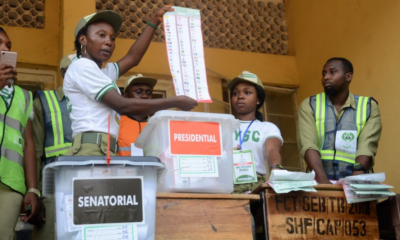GRTech
Igbo Tech organization to reproduce Silicon Valley
Reporter: Sandra Ani


NDI Igbo at home and abroad have come together to develop a strong technological ecology to leverage the abundant innovation, entrepreneurship and resilience of their people to drive rapid economic advancement and development in the region and across Africa.
The organisation, Mgborogwu Ndi Igbo Development Initiative, a non-political and non-religious organisation also known as Advance Africa, fully registered in Nigeria as a Trustee, works to promote the flowing inventiveness and innovations in that region, to facilitate the incubation of startups to commercial levels, to advance local entrepreneurship and to help create uncommon opportunities that will drive rapid development and banish poverty and dependence across Africa within a short period of time.
Mgborogwu Ndi Igbo Development Initiative plans to employ the strategic pattern of the Silicon Valley – Stanford University model with local modifications where the organisation and a local university join forces to mentor innovators, work to encourage angel investors’ participation, help to promote conducive business climate and encourage the creation of enabling foundations for talents across Africa to flourish and for entrepreneurial habits to become the norm. Its area of focus include agriculture, STEM education, technological infrastructure, research, sustainability, science and technology entrepreneurship and manufacturing.


Mgborogwu Ndi Igbo Development Initiative
The organisation which will be inaugurated in Enugu today, October 9, 2021 at Toprank Hotel, Enugu was innovated by a cream of Igbo professionals and businessmen across the globe who consider that Africa must join the Fourth Industrial Revolution if it must compete favourably with other advancing continents including Barrister Ndubuisi Nwasike who is their Chairman, Board of Trustees; Mrs Grace Okaro, the Vice President; Professor Val Ukachukwu, member of Board of Trustees; Mrs Ogeh Emefiele, the National Director for Women in Technology; Mr Gaius Ebere, their National Secretary; Professor Nnenna Obasi, the National Director of Technical Education, Dr Edwin Morah, the organisation’s Chairman in Enugu, Mr Cajetan Otuekere, President and former Vice Chairman of Ojo Local Government, Mr H C Igwe who is their National Registrar and many others.
Members of the public who wish to volunteer ideas, suggestions and enquiries can visit the website: www.mgborogwuigbo.com or contact Dr Edwin Morah 08115206725, Cajetan Otuekere, 08180025220, Gaius Ebere,08035271306 or any other officers.
-



 GRPolitics4 days ago
GRPolitics4 days agoLet the People’s Voice Stand: A High‑Assertiveness Call to Democratic Integrity in the Digital Age
-



 Spotlight5 days ago
Spotlight5 days agoProphetic Outlook for 2026: Help Is on the Way
-



 GRPolitics5 days ago
GRPolitics5 days agoAmidst Atiku and Obi in ADC, Bola Ahmed Tinubu Retains a Significant Structural Advantage Ahead of the 2027 Election – A Data‑Driven Assessment
-



 Culture4 days ago
Culture4 days agoGovernor Mbah Visits Igwe Greg Ugwu, Enyi 1 of Attakwu, Nkanu West LGA








